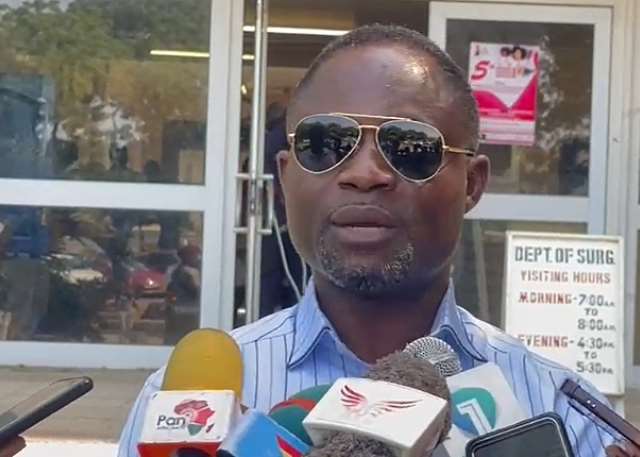The ongoing strike by the Ghana Registered Nurses and Midwives Association (GRNMA) has sparked a national crisis in healthcare delivery, prompting urgent calls for resolution from Health Minister Kwabena Mintah Akandoh. The strike, initiated on May 28th, 2024, stems from the government’s alleged failure to fully implement the terms of the 2024 collective agreement signed with the Ministry of Health. This agreement outlines crucial aspects of nurses’ and midwives’ working conditions, including salary adjustments, benefits, and professional development opportunities. The GRNMA contends that the government’s non-compliance with the agreement represents a breach of trust and a disregard for the vital contributions of these healthcare professionals. The Minister’s nationwide tour of health facilities underscores the severity of the situation, revealing the strain placed on the healthcare system by the absence of these essential workers.
Minister Akandoh, while acknowledging the legitimacy of the GRNMA’s concerns regarding the unfulfilled agreement, has appealed to the association to prioritize patient welfare and return to the negotiating table. He emphasized the importance of dialogue and compromise in resolving disputes, stressing that a strike ultimately harms the very patients nurses and midwives are dedicated to serving. The Minister believes that open communication and a willingness to find common ground are crucial for achieving a sustainable resolution. He has reiterated his commitment to engaging with the GRNMA leadership to address their grievances and find a mutually acceptable solution. However, the GRNMA remains resolute in its position, insisting that the strike will continue until the government demonstrates concrete commitment to honoring the entirety of the collective agreement.
The impasse between the government and the GRNMA has resulted in significant disruptions to healthcare services across the country. Emergency wards are overwhelmed with patients, leading to extended wait times and potentially compromising the quality of care. Scheduled surgeries and other essential medical procedures have been postponed, further exacerbating the backlog in an already strained healthcare system. The shortage of nursing staff has forced hospitals to operate with reduced capacity, impacting the availability of essential services and jeopardizing patient safety. The situation is particularly dire in rural and underserved communities, where access to healthcare is already limited. The absence of nurses and midwives in these areas has effectively crippled healthcare delivery, leaving vulnerable populations without access to even basic medical attention.
The prolonged strike poses a significant threat to public health, highlighting the critical role nurses and midwives play in the healthcare ecosystem. Their absence has created a ripple effect, impacting not only patient care but also the overall functioning of the healthcare system. The increased workload burden on remaining healthcare staff has led to fatigue and burnout, further compromising the quality of care. The situation also raises concerns about the long-term consequences of delayed or inadequate medical attention, potentially leading to increased morbidity and mortality rates. The ongoing crisis underscores the urgent need for a swift and equitable resolution that addresses the concerns of the GRNMA while ensuring the continuity of essential healthcare services.
The GRNMA’s unwavering stance reflects the deep-seated frustration and distrust among its members. They argue that the government’s failure to implement the collective agreement demonstrates a lack of respect for their profession and a disregard for their crucial contributions to the health and well-being of the nation. They maintain that the strike is a last resort, a necessary measure to protect their rights and ensure that their voices are heard. They are demanding tangible action from the government, not mere promises or assurances. The association emphasizes that their commitment to patient care remains unwavering, but that they cannot continue to provide quality services under conditions that undermine their professional dignity and economic security.
The resolution of this crisis requires a multifaceted approach that addresses both the immediate concerns of the GRNMA and the long-term challenges facing the healthcare system. The government must demonstrate a genuine commitment to honoring the collective agreement and addressing the legitimate grievances of nurses and midwives. This includes ensuring timely payment of salaries and benefits, providing adequate resources and training, and creating a supportive work environment that values their contributions. Furthermore, there is a need for a comprehensive review of the healthcare system to address underlying systemic issues, such as inadequate funding, staffing shortages, and inequitable access to care. A collaborative effort involving all stakeholders, including the government, healthcare professionals, and civil society organizations, is crucial for achieving sustainable and equitable healthcare for all citizens. Only through open dialogue, mutual respect, and a shared commitment to improving the healthcare system can this crisis be resolved and the well-being of both healthcare workers and patients be safeguarded.














